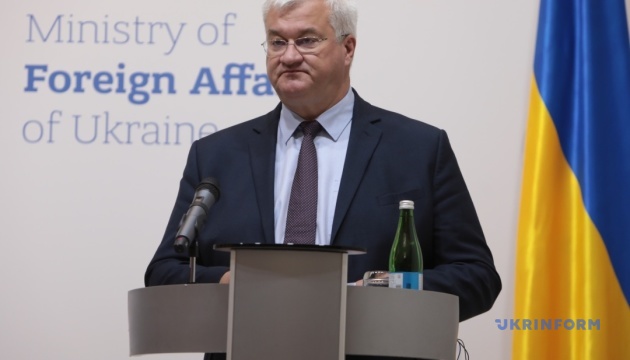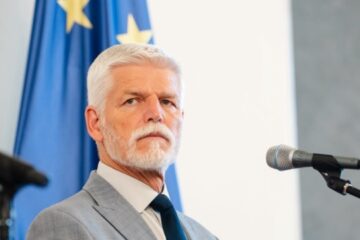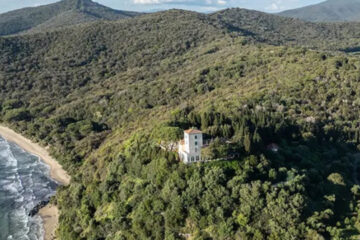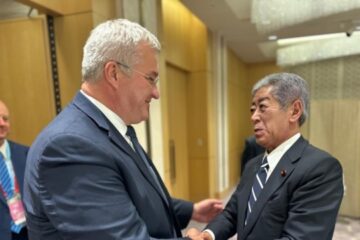Ukrainian Foreign Minister Andriy Sybiha met with Vice Prime Minister and Minister of Foreign Affairs of Poland Radosław Sikorski at the latter’s personal residence in Chobielin-Dwor in northern Poland. It’s not often that the Polish Foreign Minister invites foreign guests to his private estate, thus highlighting the guest’s importance and good personal relations. The meeting is also evidence of the intensive and constructive dialogue between Ukraine and Poland.
After the talks with Mr. Sikorski, Ukraine’s chief diplomat, in a conversation with an Ukrinform correspondent, revealed some specifics of the Kyiv-Warsaw dialogue and spoke about certain aspects of the international agenda regarding, in particular, joint efforts to force the Russian aggressor to peace and the need for reforms in the OSCE.
SANCTIONS AGAINST RUSSIA HAVE TO BECOME DEVASTATING
– Mr. Minister, the White House has issued an ultimatum to Russia demanding a ceasefire by August 8. If Russia does not stop bombing peaceful Ukrainian cities and continues with active hostilities on the front line, what steps should the United States and our Western allies take after this ultimatum expires?
– Further pressure, further decisive steps to force Putin and Russia to peace, to a ceasefire. We welcome these decisive steps by the U.S. side, by President Trump personally, because they are aimed at bringing a just peace in Ukraine closer. I believe that we are now at the (appropriate) point for maximum mobilization of all diplomatic efforts in order to facilitate the peace process. We need leadership and broad involvement of the United States, because this is one of the key guarantees that we will end this war this year and halt Russian aggression.
Therefore, sanctions, of course. We must raise the price of the continued aggression by the Russian aggressor. Sanctions must be synchronized. We have the 18th package of sanctions adopted by the European Union. It is indeed very comprehensive and powerful. And now it is important that this be synchronized with the U.S. package. I mean the transatlantic sanctions package. And we have other countries: Great Britain, Japan, New Zealand, Canada. By the way, Ukraine has synchronized its 18th sanctions package. These sanctions must be devastating in nature to break the backbone of the Russian economy and deprive Russia of the ability to finance its military machine. The main source of revenue for the Russian budget is the export of energy resources, in particular, oil. Therefore, it is crucial that those countries that currently buy the most oil from Russia also feel the consequences and stop making money from trade in Russian oil. We know these countries and are currently meticulously, meaningfully working with our partners to impose sanctions on specific business entities and specific countries that make money from this oil.
While in Poland, it should be noted that Warsaw holds the current presidency of the Council of the Baltic Sea States, and around 70% of Russia’s shadow fleet is transporting oil through the Baltic. And here too, there is still untapped potential. We talked with Vice Prime Minister – Minister of Foreign Affairs Radosław Sikorski about how to make it possible to block Russian oil exports by stopping the “shadow fleet” shipping through the Baltic Sea.
The Polish side completely shares the position that our security is Polish security, and in general, that the security of Ukraine, the security of Europe and transatlantic security are indivisible. Hence the growing challenges and risks, which, naturally, makes us cooperate more closely in order to confront them together. And I am grateful to the Polish side for this, because we have now achieved a sufficiently high intensity of bilateral contacts. President Zelensky had a conversation with the newly elected President Karol Nawrocki of Poland. It was a substantive and very nice conversation. We are also looking forward to Mr. Nawrocki’s visit to Ukraine after his inauguration.
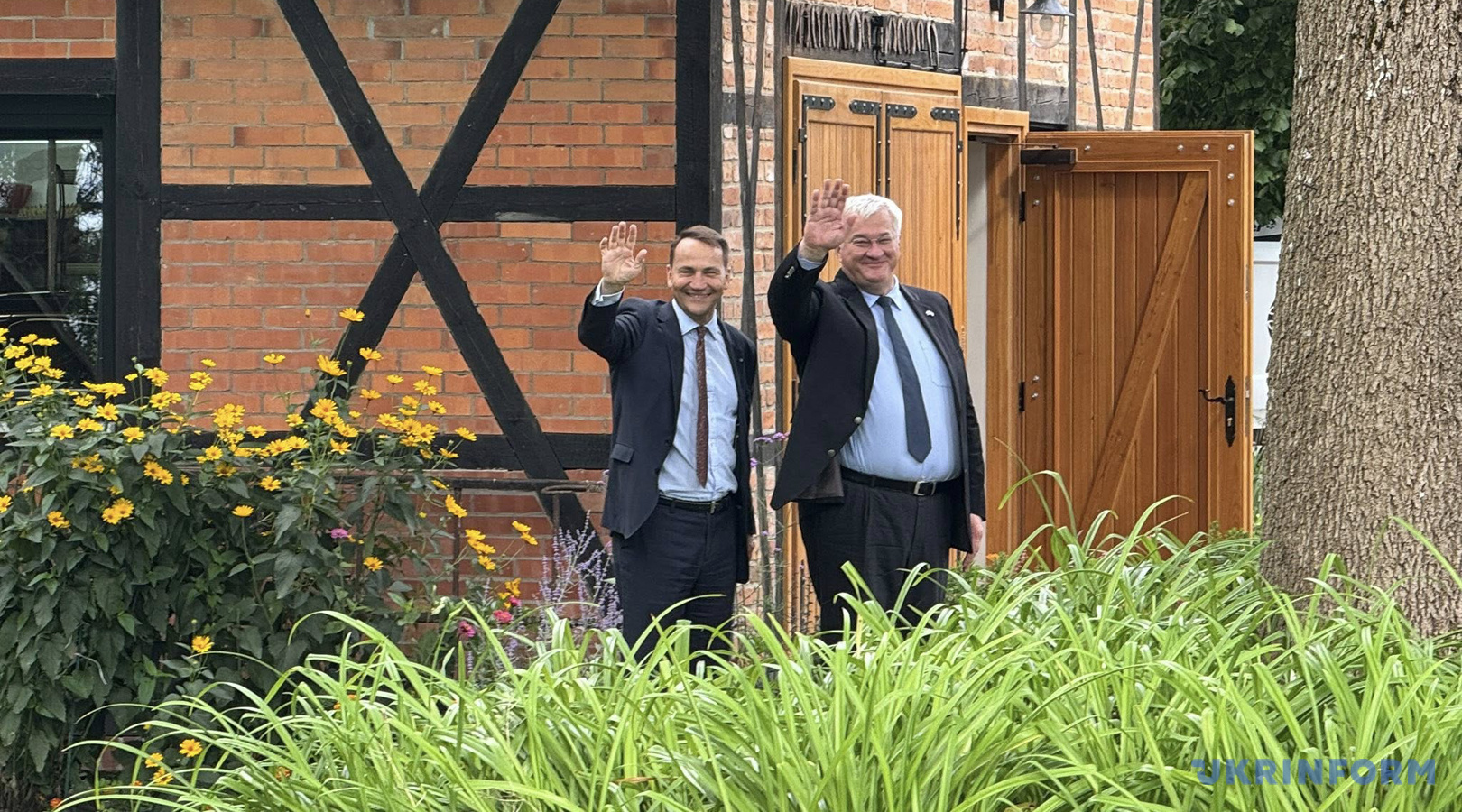
OSCE SHOULD GET RID OF ITS PRACTICE OF CONSENSUS-BASED DECISION-MAKING
– Mr. Minister, a few days ago in Helsinki you said that Ukraine has a clear vision of how to comprehensively reform the OSCE, and that Kyiv is proposing five steps that could take the organization out of the deadlock. Could you please elaborate on the steps you are talking about, and do they include abandoning consensus-based decision-making practice within the organization?
– I recently attended the [OSCE] foreign ministerial meeting marking the 50th anniversary of the Helsinki Final Act. Based on our bitter experience and our vision that an aggressor country has no place in international organizations, we proposed five steps that, in our opinion, could, first of all, strengthen the OSCE institutionally, and also allow this Organization, among other things, to act proactively. Unfortunately, we have a negative experience with the OSCE. I mean its involvement in verification missions after 2014. Therefore, it is very important to streamline OSCE’s activities. First, we must get rid of the outdated consensus-based decision-making practice, which, due to Russia’s abuse, like the UN Security Council veto power, condemns the OSCE to non-functioning. It is therefore crucial to get rid of this, and Ukraine will be among the countries to defend this track.
Secondly, this conference should adopt an appropriate mechanism that will allow the OSCE to suspend the membership of the states that violate the Organization’s principles or the fundamental principles of the Helsinki Final Act.
Thirdly, we believe that the [Organization’s] presidency should be reformed. In particular, the powers of the OSCE Troika and of the institute of presidency of the Organization should be expanded.
Fourthly, the mechanism for appointing the OSCE leadership should be upgraded, as this has direct implications in defining priorities and ensuring the Organization’s functionality.
And finally, this is reputation. We also need to work on this so that the OSCE truly complies with the ideas and the concept that were laid down in its foundation. It was in the time of the Cold War, and, in our opinion, today there is a wide gap between the Organization’s functionality and the awareness of realities. An all-out war is raging in Europe. The Russian aggressor is committing criminal acts against us, having committed unprovoked aggression. And this, accordingly, has to be reflected in the OSCE’s activities.
CONSULATE OF UKRAINE IN RZESZÓW WILL BEGIN OPERATIONS BY YEAR‘S END
– Karol Nawrocki will be inaugurated as the President of Poland on August 6. At what level will Ukraine be represented at this ceremony? And can we expect the new Polish president to attend the Independence Day celebrations in Kyiv?
– As far as I know, no foreign guests are invited to attend [presidential] inauguration [ceremonies in Poland]. Therefore, our representation will depend on the invitations to be received by the Ukrainian side. But the common practice is inviting the diplomatic corps to attend.
As for the timeline for the newly elected president Karol Nawrocki’s visit, our invitation is open. We have a strong interest in a dialogue between the leaders of the countries to be established as soon as possible. We are open to discussing substantive issues on our agenda. Therefore, we are looking forward to the visit by the president of friendly Poland to friendly Ukraine, and we do not need to wait for any symbolic days for this invitation.
– Ukraine is planning to launch its new consular institutions in Rzeszow and Poznan. Will these consular institutions start operating this year, or is this a more distant prospect?
– We do have plans to bolster Ukraine’s consular presence in Poland, proceeding from the need to strengthen the protection of our citizens. This is one of the priorities that was once again set as a result of the recent meeting of heads of [Ukraine’s] diplomatic missions. That being said, our plans include launching the consulate in Rzeszów by the end of the year. Another consular office will be launched in Poznan. We are currently intensively working to handle the issues of logistics and adequate staffing. But these specific decisions are aimed at strengthening the protection of our citizens. Poland is one of the largest countries in terms of the Ukrainian population, and we really want them to feel the care from their state.
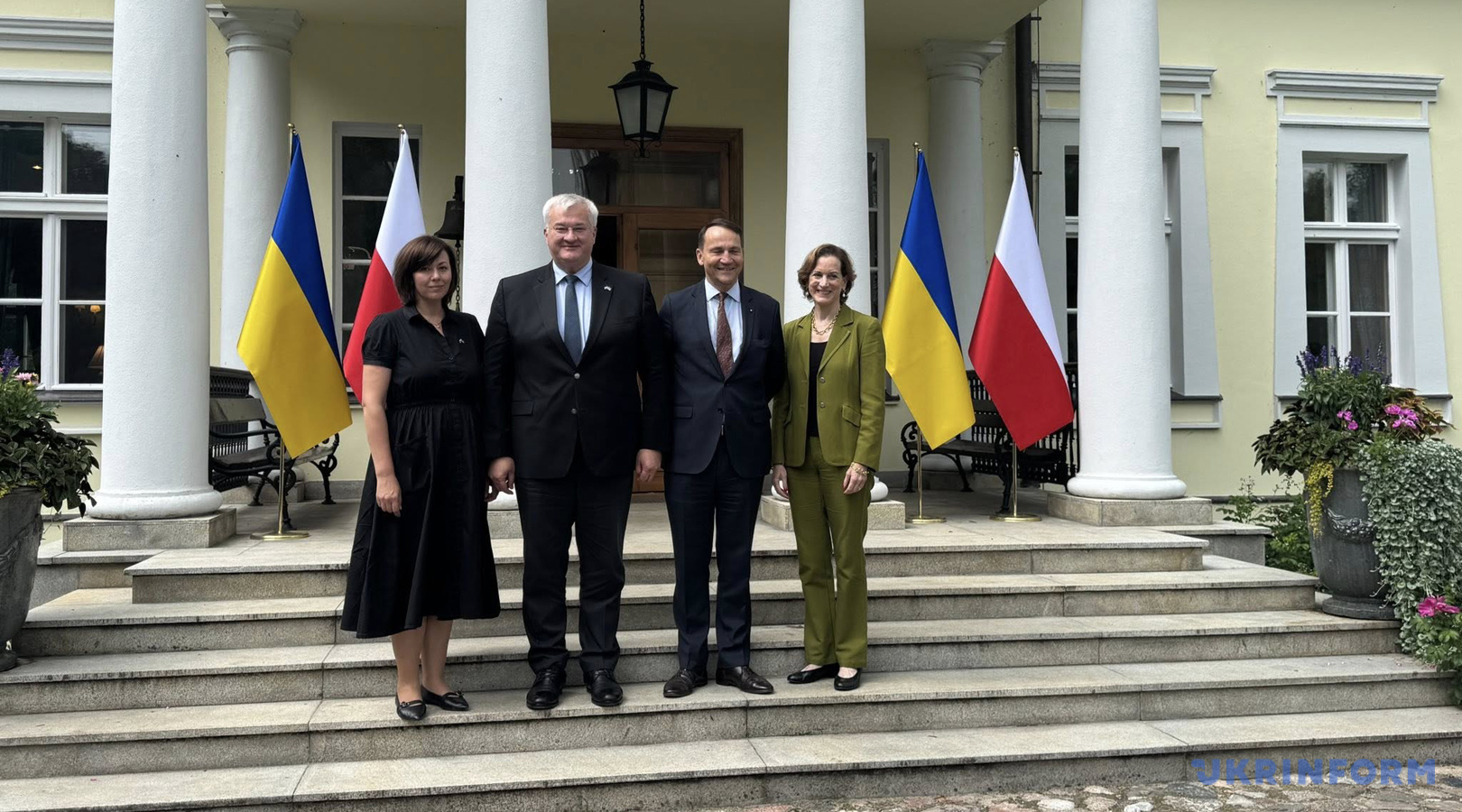
UKRAINE HAS ASKED POLAND FOR A LOAN TO PURCHASE POLISH-MADE WEAPONS SYSTEMS
– Mr. Minister, at a press conference alongside Vice Prime Minister Sikorski, you both spoke about as many as three packages of Polish military aid for Ukraine. Where is the current focus of defense cooperation between Kyiv and Warsaw? What does Ukraine need most from Poland now, and on what issues does Warsaw want most to cooperate with Ukraine?
– Indeed, we touched on the issue of further cooperation in the defense sector. We thanked for the 46th package, discussed the new packages being currently compiled by the Polish side. Of course, we always communicate to our partners the key battlefield priorities and the specific needs of Ukrainian forces. I would not disclose those topics, because they are sensitive and love silence. The enemy will feel the results of these decisions on the battlefield, in the effectiveness of our troops. Take, for example, the Piorun MANPAD. The Polish Piorun has proven highly effective and battle-tested, and we are ready to acquire them. This was one of the topics we discussed with Mr. Sikorski, specifically the possibility of securing a loan. Using this credit, we are ready to purchase products from Poland’s defense industrial sector. Poland has strong traditions in defense manufacturing, and we are open to acquiring this equipment. Ukraine has a vested interest in this, which I confirmed once again in a conversation with Mr. Sikorsky. The Polish Krab [self-propelled howitzer] system is highly effective too. Quite obviously, weapons are never enough in a country at war. And so we will definitely talk, among other things, about co-production both on the territory of Ukraine and on the territory of Poland. This is a shared interest, a mutually beneficial one, and a contribution to our common future.
– Is Ukraine requesting a loan of a specific amount?
– Yes, we talked about a loan worth 120 million euros.
– During a recent meeting with Minister Sikorski in Lublin, you discussed plans to launch a historians’ forum within the Lublin Triangle. What is the prospect for such a forum to be set up? What will historians discuss, and how is the Ukrainian-Polish historical dialogue progressing?
– I believe that we have achieved significant progress on this track. We have created an intergovernmental commission. Today, both the Ukrainian and Polish sides have begun issuing relevant permits for search and exhumation work. Regarding the Polish side, search and exhumation work has already been completed in a settlement on the territory of Ukraine. This is very important. This issue, which has spoiled our friendly relations for so many years, must be removed in precisely this connotation. It has to continue developing appropriately, and there should be no obstacles in this track.
At this meeting, we touched upon the issue of establishing a forum of historians. Within the framework of the Lublin Triangle, we have an institute of coordinators. Following the foreign ministerial meeting, we instructed the coordinators to draw up concepts for both this tripartite historians’ forum project and other agreements that need to be implemented. This is currently at the development stage before consideration and approval at the highest level. I do hope that we will move forward very quickly in this direction.
Yuriy Banakhevych, Warsaw
Photo via Author

